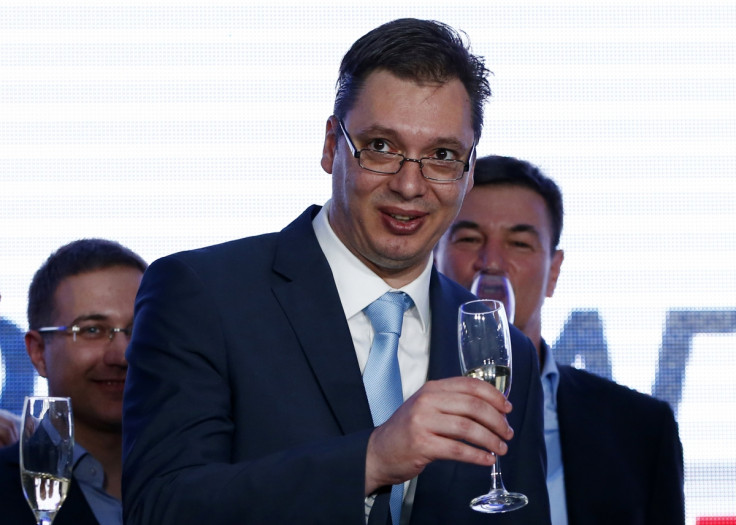Serbia's New Prime Minister Aleksandar Vucic Focusing on Economy Overhaul and EU Membership

Alexsandar Vucic, leader of the Serbian Progressive Party (SNS) and former Serbian deputy Prime Minister, was officially appointed Prime Minister by President Tomislav Nikolic following a landslide victory for the SNS in the March parliamentary elections.
The incoming government has committed itself to an agenda of critical reforms focused on bolstering the economy, job creation and the continual fight against corruption.
The Government, which was sworn in on 27 April, will also continue the strong progress towards European Union accession after talks formally opened in January 2014. Serbia aims to become a full EU member by 2020.
"We have the strongest mandate for reform from the Serbian people in years and this is a fantastic opportunity to build a better future because the most important partnership is between the people and the government," said Vucic.
"We know the road ahead will not always be easy but with the necessary reforms, Serbia can once again become a regional champion of industry and agriculture as well as an outstanding destination for foreign investment."
"I look forward to working with my new Cabinet colleagues to realise our vision and make real strides towards a stronger economy and better opportunities for all."
The top priority of the new Government is reviving the economy.
Already, 21 legislative initiatives are underway to improve the conditions for economic investment, ranging from a new, more flexible labour law, to a revamped bankruptcy code to provide the financial services sector with the certainty it needs when offering loans.
Lazar Krstic is confirmed as Finance Minister, a position to which he was appointed in 2013 under the coalition government. Since his appointment, Krstic's bold reform plans have been endorsed by international experts with IMF hailing the austerity programme as a move 'in the right direction'.
Ivica Dacic, as the new Foreign Minister, will continue Serbia-Kosovo talks and the implementation of the 2013 Brussels agreement on normalisation of relations between the two countries.
Other appointments include Dusan Vuljovic as the Minister of Economy, Alexander Antich as Minister of Mines and Energy, and Zorana Mihajlović as Minister of Construction, Transport and Infrastructure.
The Republic of Serbia is located at the crossroads of Central and South-Eastern Europe with a population of 7.12 million.
Serbia became a stand-alone sovereign republic in the summer of 2006. The capital of Serbia and the country's administrative, economic and cultural centre is Belgrade, with a population of 1.64m.
Serbia is the biggest and most diversified economy in the region with a GDP of €35.28 billion.
This is predicted to grow at an average annual rate of 5.8% until 2020 under the current Government's programme focused on investment growth.
With a corporate tax rate of 10% - the lowest in Europe - Serbia offers an attractive business environment and the volume of foreign direct investment (FDI) is growing rapidly. I
n the first quarter of 2013, FDI inflow was €330m compared to €180m in the same period of 2012. During the same period, there was also a 25% increase in exports.
© Copyright IBTimes 2025. All rights reserved.






















